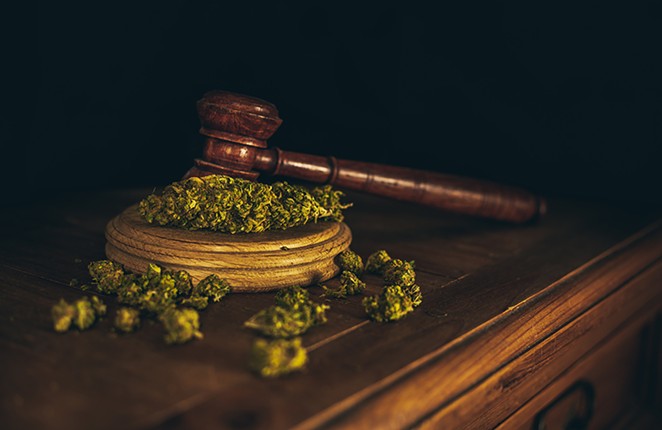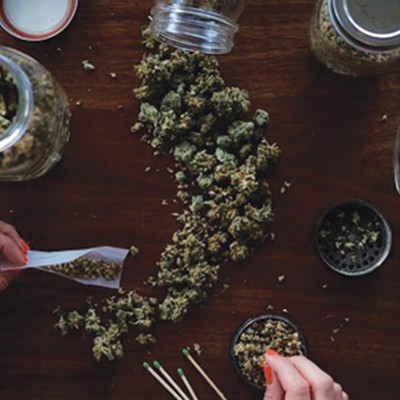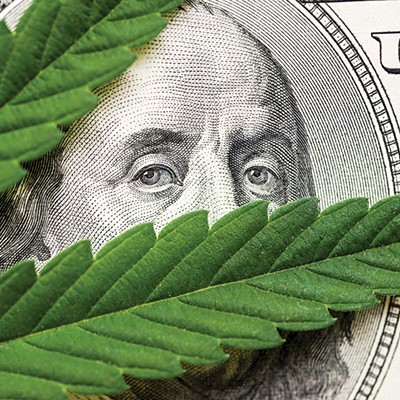The last few months have seen numerous stories positing that the Feds are on the cusp of legalizing cannabis. Or, it's going to be made "more legal." Which is great! Unless, of course, it's not. And when will these changes be happening? "Soon."
Although 24 states have Adult Use cannabis programs, and 38 have Medical Cannabis programs, and polls consistently show Americans favor legalized cannabis, it remains federally illegal. Specifically, it's a Schedule 1 drug on the Drug Enforcement Administration's Controlled Substances Act Drug Schedule.
- Schedule 1 drugs are defined as having "no currently accepted medical use and a high potential for abuse." Some examples: heroin, lysergic acid diethylamide (LSD), marijuana, 3,4-methylenedioxymethamphetamine (ecstasy), methaqualone, and peyote.
- Schedule 2 drugs have a "high potential for abuse...potentially leading to severe psychological or physical dependence (and are) ...considered dangerous." (Cocaine, Methamphetamine, Oxycodone (OxyContin), Fentanyl, Adderall, and Ritalin.)
- Schedule 3 has "moderate to low potential for physical and psychological dependence." (Tylenol with codeine, ketamine, anabolic steroids.)
- Schedule 4 "low potential for abuse and low risk of dependence." (Xanax, Darvocet, Valium, Ambien.)
- Schedule 5 has "lower potential for abuse than Schedule IV and consists of preparations containing limited quantities of certain narcotics.
For many, (raises hand) the goal is to deschedule cannabis, removing it completely from DEA oversight, making it a federally legal commodity and eliminating burdens for numerous groups and individuals. What's being discussed is not that. Cannabis is not going to be descheduled anytime soon — sorry — but rescheduling is looking more likely to happen than ever before.
The efforts to reschedule have been ongoing for years. In 2016 a group of eight Democratic senators asked the DEA to reschedule cannabis but to no avail. But on Oct. 6, 2022, President Biden issued a statement pardoning federal cannabis convictions for simple possession, and asked the Attorney General and the Secretary of Health and Human Services to examine the Schedule 1 classification of cannabis.
On Aug. 30, the HHS released its report, which along with the Food and Drug Administration, recommended that the DEA (which is part of the Justice Department, overseen by the Attorney General) move Cannabis to Schedule 3. While not the optimal recommendation, a Schedule 3 listing would have benefits for many groups.
Those in the cannabis industry would most likely see a change in the exclusively punishing 280-E tax code, which prohibits any cannabis business from taking tax deductions or credits, effectively making their federal tax rate 40 to 80%, versus a standard corporate tax rate of 21%. Consumers could see lower prices as the tax code changes would allow greater profits for the industry.
Medical research would potentially benefit from easier access, a win for everyone.
But Schedule 3 has shortcomings and potential changes which could have a major negative impact.
Financial services for cannabis would likely remain next to nonexistent. Banking, loans, etc., would still be unavailable.
Dispensaries would still be illegal under federal law. Whaaaaat? 100%, because "the FDA would need to approve cannabis-based medicines, which would need to be prescribed by a health care practitioner and dispensed by a registered pharmacist/practitioner." That's not great, because...
It's a long, absurdly expensive process to gain FDA approval, which costs more than the vast majority of cannabis businesses could afford, much less navigate. You know who has the money, time and expertise to get approval? Big Pharma.
Valuable new cannabis products and therapies await fast-lane development with their resources, but end user costs and patents won't benefit anyone but their shareholders.
The Drug Policy Alliance issued a statement reminding us that state cannabis programs will "remain federally illegal, meaning patients, consumers and workers would remain subject to federal arrest; noncitizens would remain subject to deportation simply for possessing marijuana or working in the industry. It also means that federal benefits, such as housing and nutritional assistance, will still be denied to certain people with previous marijuana convictions."
As far as when this will happen, MJ BizDaily writes that experts told them, "the initial proposed rule could be issued by the end of the year and the process finalized by next spring." But that's a best-case scenario, and could take far longer. Stay tuned.





















